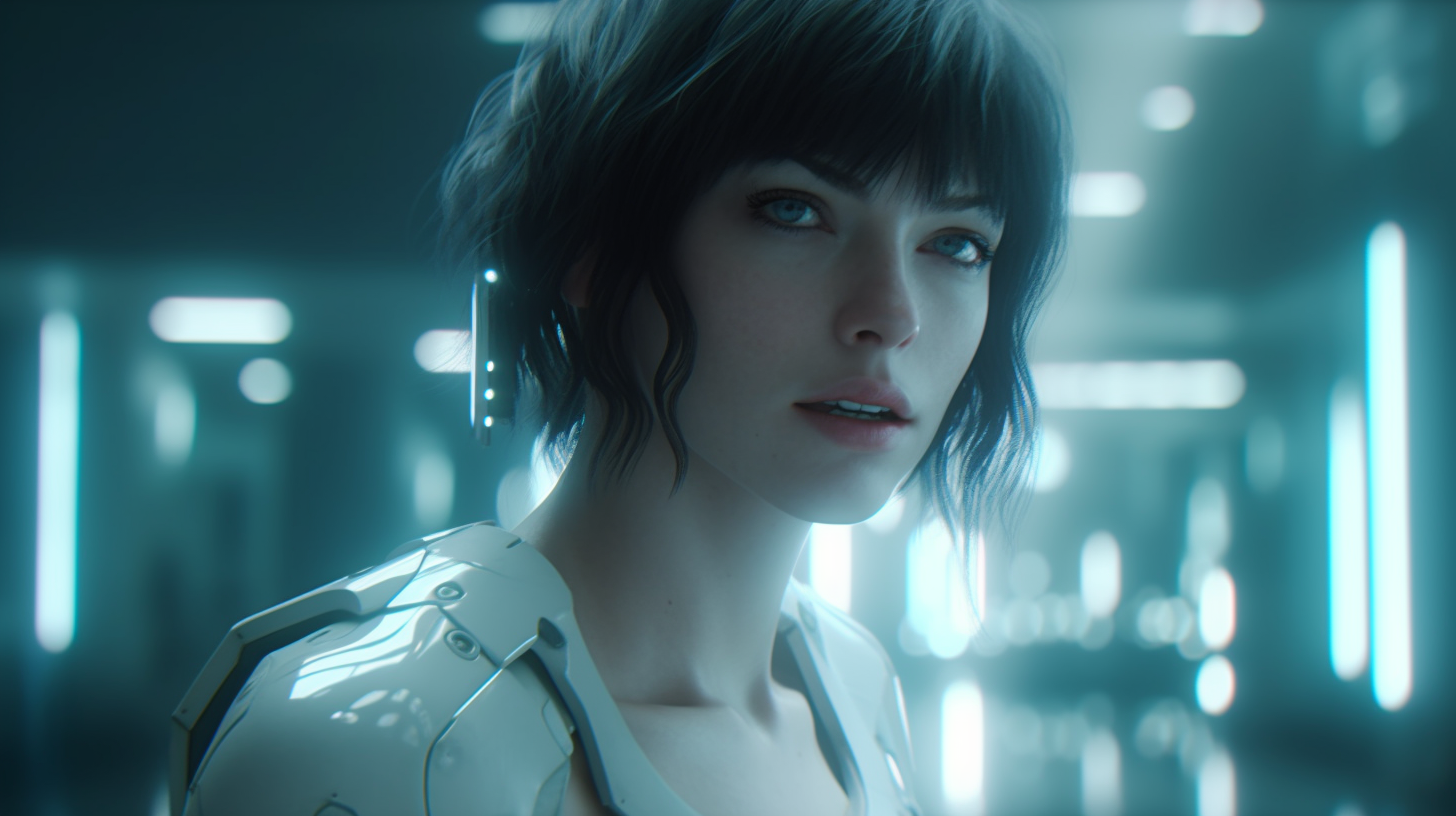From Bionic Enhancements to Cybernetic Evolution: Exploring the Intersection of Human Identity and Technological Innovation
Delve into the intricate narrative of human identity and technological innovation as this thought-provoking article explores the implications of advancements in bionic enhancements, cybernetics, and the blurring boundaries between man and machine.

While Tesla is ushering us closer to a Knight Rider reality, a world buzzing with intelligent cars enhancing daily lives, we must recognize that these are not merely technological milestones reminiscent of old spy movies. Let us explore how advancements such as these are integral parts of an intricate narrative – a narrative that discusses the balance between human identity and the relentless pursuit of technological innovation.
A revolutionary development is arising in which individuals injured in wars, previously condemned to a life without limbs, can now seize a fresh lease on life through advanced prosthetic implants.
Well-known TV shows like 'The Six Million Dollar Man' and 'Intelligence' have long introduced the idea of human enhancement through technology. These series showcase individuals triumphing over adversity using technological intervention - whether through bionic limbs or access to a global information grid. As we witness advances such as Neuralink, these once sci-fi notions are morphing into tangible realities.
As spy fiction converges with reality, we must critically assess the implications. Picture a world where military veterans, previously crippled, are endowed with unprecedented strength due to bionic implants. As this vision becomes increasingly plausible, it may ignite a pursuit of enhancements, potentially tipping societal norms and sparking unforeseen consequences.
While the 'Terminator'-style threats of AI often dominate discourse, the more subtle and immediate dangers echoed in the Cyberpunk genre deserve our attention.
The impact and implications of such advancements are explored in popular culture. Series and video games like 'Cyberpunk: Edgerunners', 'Cyberpunk 2077', and 'Deus Ex' present vivid depictions of futures where cybernetic augmentations are as commonplace as smartphones. They offer us a glimpse into a world where we may willingly embrace machinery, potentially discarding biological restraints.
In Cyberpunk 2077, where the protagonist voluntarily has her natural eye replaced at the very beginning of the story with an artificial one to perform her job more effectively. What may initially appear as voluntary mutilation is gradually normalized.
Further, consider the plight of hotel clerks in Cyberpunk 2077 who must replace their natural skin with synthetic gold as a job requirement, financed by the hotel, and repaid over time. This presents disturbing ethical dilemmas around worker exploitation and the devaluation of human dignity.
Cyberpunk also raises the specter of 'cyberpsychosis,' a dissociative disorder caused by an overload of cybernetic augmentations. This condition amplifies existing psychopathic tendencies and completely erodes an individual's sense of identity, perceiving unenhanced humans as weak and inferior. This introduces a new dimension of danger as cyberpsychos, with their augmented abilities and total disregard for life, pose a serious threat to society.
While we may envisage a utopian future reminiscent of Star Trek, it is crucial not to overlook the potential stark realities that could emerge during our pursuit of such advancements.
Renowned scholar Yuval Noah Harari suggests that technologies like Neuralink chips could be the catalyst for humanity's transcendence, potentially enabling a hive-mind interconnected collective with seemingly telepathic communication. Although such advancements are revolutionary, we cannot ignore the potential costs.
As Harari points out, humans may indeed be 'hackable animals,' and the notion of free will could become obsolete. In such a world, we must ponder whether the souls is left behind. The anime series 'Ghost in the Shell' forecasts a future we may soon inhabit. Yet, in the face of such progress, we must ask: what fundamental aspects of our humanity are we willing to relinquish in the pursuit of advancement?
Psychology has long explored the dual nature of our consciousness, suggesting that we're a combination of body and mind. As CGP Grey illuminates in his video 'You are Two', we might be more of a symbiosis than a single entity. But with technology moving us towards potential bodily modifications, are we not risking part of that symbiotic relationship?
As many spiritual traditions teach us, every part of the body contributes to our identity and cognition, often inspiring creativity through motion and silence.
Accepting this premise implies that replacing biological arms with bionic alternatives for enhanced efficiency signifies more than a mere physical modification. It suggests that we might inadvertently forfeit not just an appendage, but a critical aspect of our identity and humanity.
Given the innate human fear of mutilation, it is paramount that we explore non-invasive means to achieve these enhancements.
Until recently, science and spirituality were considered two sides of the same coin. Figures like Isaac Newton, a seminal figure in scientific history, explored topics like alchemy, deeply intertwined with spiritual belief systems such as Hermeticism.
The disciplines of science, engineering, and art all share a common foundation – creativity. This fundamental element breathes life into the soul, sparking a profound spiritual connection. This realization illuminates the intersection of these domains, challenging the notion of a simple dichotomy and suggesting a multidimensional interplay of perspectives.
Leonardo Da Vinci's life and work serve as an excellent example of this confluence. An unrivaled master of art, science, and engineering, Da Vinci encapsulates the symbiotic relationship among these domains. As science continues to progress, it's incumbent upon us to simultaneously foster our artistic and spiritual growth, ensuring a balanced evolution. Neglecting this balance might lead us into a discord that could prove irreparable.